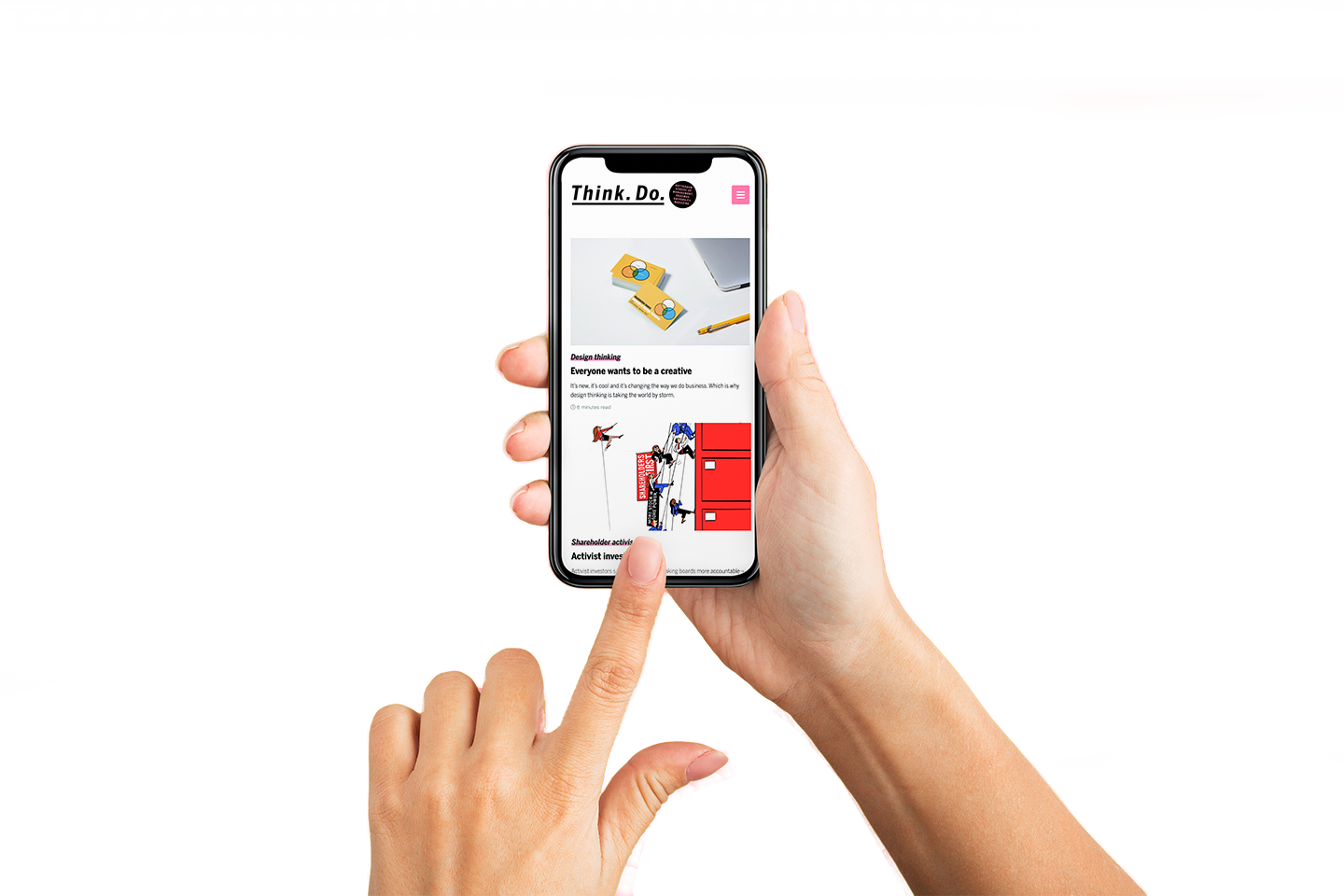Over 35? Here are five surprising things about working with Gen Z
They may be the youngest members of your workforce, but what they think – and what they do next – will define your success for the next 30 years. Researcher Hana Ben Shabat (MBA, 1995) tells us what we need to know about our new colleagues.

Hi-tech but ‘hi-touch’
Gen Z can easily navigate technology and easily accomplish technological tasks, but they are also very ‘hi-touch’, suggests Hana Ben-Shabat, founder of the consultancy Gen Z Planet and author of Gen Z 360: Preparing for the Inevitable Change in Culture, Work and Commerce. “They require close supervision in the workplace and they want regular feedback. Part of that is because they’re highly competitive – they want to know where they stand and how to exceed expectations.” Hi-tech/hi-touch extends to job hunting too. “Gen Z want a smooth technology-driven recruiting process. Many companies have started to automate the whole HR process, inviting candidates to do pre-recorded video interviews, for example. But while this is a generation that feels very comfortable with this, they also want the human connection.”
Cash savvy
Gen Z want to contribute, says Ben-Shabat, and are ready to go the extra mile because they want to progress and earn the money that can secure their future. “They have very high expectations regarding professional financial goals but it’s vital to remember that it’s not only about money: they value benefits like private medical insurance and pension contributions more than they value base salaries.”
Working for a purpose
Activism is this generation’s hallmark. They are idealists but they’re not naïve. They want to work for purpose-driven companies who are doing good in the world. “That’s a really important criteria when they look into where they want to work. They are very independent: they want to do things by themselves and they want to do things differently, but they crave community and a sense of belonging. They want to be part of something that is bigger than them.
Flexibility is key
Despite all the discussion about how younger people want to go back to the office, Ben-Shabat’s research has found that hyper-flexibility is becoming very important. “Gen Z want to have flexibility when it comes to both schedule and location: ‘I want to do my job in the time that suits me and I want to do it from anywhere I like.’ It doesn’t mean that they don’t want to go into an office; the hybrid model is something that really suits them. When you look at the big corporations, they are usually in big cities that are very expensive, especially in the United States. You cannot afford to live in New York, but you can go and live in Nashville and commute once a month to see your team. That allows you to buy a house and start building your financial future while working for a company that is in location you wouldn’t otherwise be able to afford.” The work-from-home movement is very appealing to Gen Z because it ties into their desire to secure their financial future. “Companies that take the time to unpack this requirement and provide Gen Z with the freedom and the support that they need will benefit from their willingness to work hard and their eagerness to learn and grow but most importantly from their loyalty.”
Loyal
“If they find a job that they like and that meets their expectations, Gen Z are willing to stay five years or more,” says Ben-Shabat. “If you take this generation and nurture them, they are going to stay with you. I’m not saying they’ll stay a lifetime because no one does that now, but my research indicates that they will be willing to consider staying in a role if the conditions are what they expect.
Hana Ben-Shabat is the founder of the consultancy Gen Z Planet and author of Gen Z 360: Preparing for the Inevitable Change in Culture, Work and Commerce



